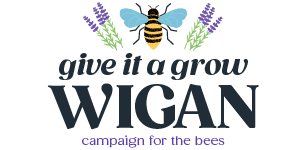Audio Version - The Danger of Pesticides
What are pesticides used for?
Pesticides are created in labs to kill off the undesirables, such as; slugs, snails, fungi, ants, some plant diseases, and aphids to protect crops, public spaces and gardens.
What's the issue?
However, pesticides like neonicotinoids (and many more available) can kill ANY insect, including our vital pollinators, as you may expect with the label insecticide, even in tiny doses. They are not selective. In 2018 the EU banned the three main neonicotinoids for all outdoor uses, but there are still more very similar chemicals out there. See the RSPB website for more details.
Danger to wildlife
We’ve learned as eager hedgehogs arrive after hibernation in spring, they are ready to guzzle a garden horde of pests for you (free of charge).
If those slimy slugs and snails are poisoned with the likes of Metaldehyde in slug pellets, it can be fatal. It’s a slow and cruel way for them to die. As a result of this, and loss of habitat, numbers of hedgehogs are depleting, and they are now endangered in the UK.
And the resistance for slugs against pellets is on the rise.
Pesticides not only kill our beloved hedgehogs, and then birds when they eat worms, etc from infected soil. I’m talking about hawks, eagles, owls, songbirds, and many more animals are being cut off from food.
Mammals such as hare, rabbits, and deer are at risk of starving when their food supply is poisoned or are pushed away into unknown territory with threats of additional predators.
Then there are insect-eating fish such as carp, salmon, perch… The risk extends to pesticides being leaked into waterways such as streams, canals, ponds, and reservoirs causing unwanted, and expensive contamination, which becomes a risk to all of our bodies and our pets’ bodies too.
Killing insects affects the whole food chain.
Going cold turkey
I won’t lie to you; if you have been manicuring your lawns, roses etc, with pesticides, the start of ending your dependency on pesticides may be brutal.
First, you need to relax and allow the natural system to restore, knowing the predators are coming! You won’t be overridden with ‘pests’
Welcome in the bees, wasps (yes, wasps they will eat pest insects), ladybirds, hoverflies, lacewings, frogs and hedgehogs into your life. They’ll do you a big favour.
Alternatives to Pesticide
- Remove by hand. If you have plants affected by aphids, for example, check the leaves for ladybirds too. If they’re there, great, let them get on with it. They’ll mop up the aphids and keep returning, hoping for more. If not, hose/rinse off, wipe away.
- Patrol your territory – each evening, it helps to evict slugs and snails when they come out of their hidey holes.
- Use perennial wildflowers amongst your garden to increase the number of bees, butterflies, and hoverflies, these beneficial insects will really help you out.
- Install a bug hotel
- Create small gaps for wildlife to use in your garden fence. Letting in frogs, toads, and hedgehogs will clear your garden of pests for you.
- Remove diseased leaves straight out of your garden! No compost bin, just out!
- Try companion planting for your veg patch. For example, planting nasturtiums will lure the aphids to them. Or alliums can protect against slug damage and confuse carrot fly.
I know it’s often more labour to go chemical free, but we choose to lose if we don’t adapt now. And we can’t afford to lose our wildlife.
2 Comments
-
[…] Avoid using slug pellets and pesticides. Hedgehogs can end up eating poisoned slugs and snails, or the pellets themselves. These are not […]

[…] Pesticides are not selective and will kill anything that comes into contact, so we’d never recommend them, but if you let your garden grow more naturally, often predators to the pests will start moving in. You can read more about pesticides here. […]